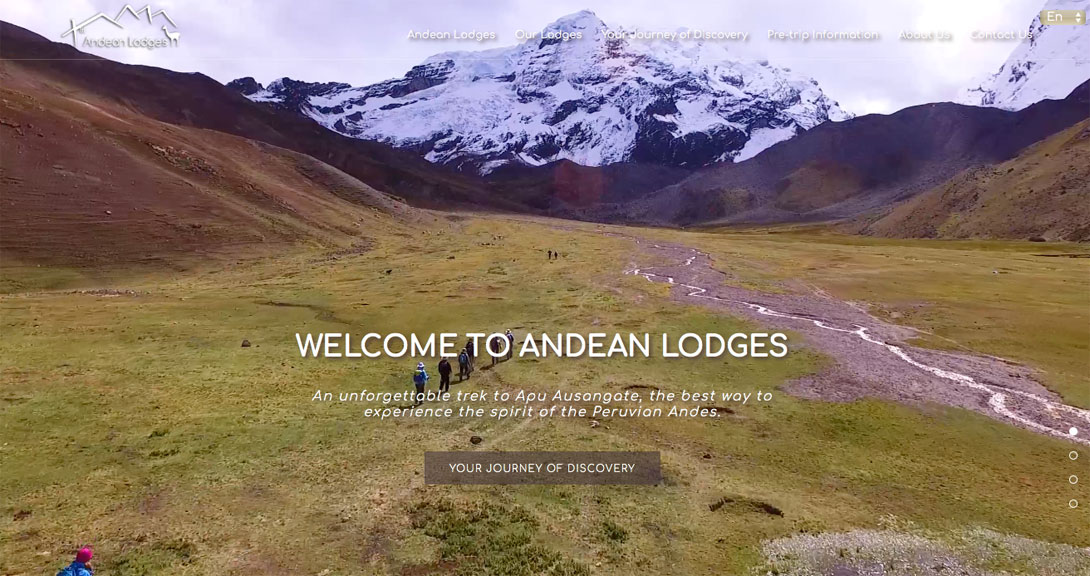Interview with Juan Carlos Flores, General Manager of Andean Lodges in Peru
- Team
- May, 31, 2018
- Interviews
- No Comments
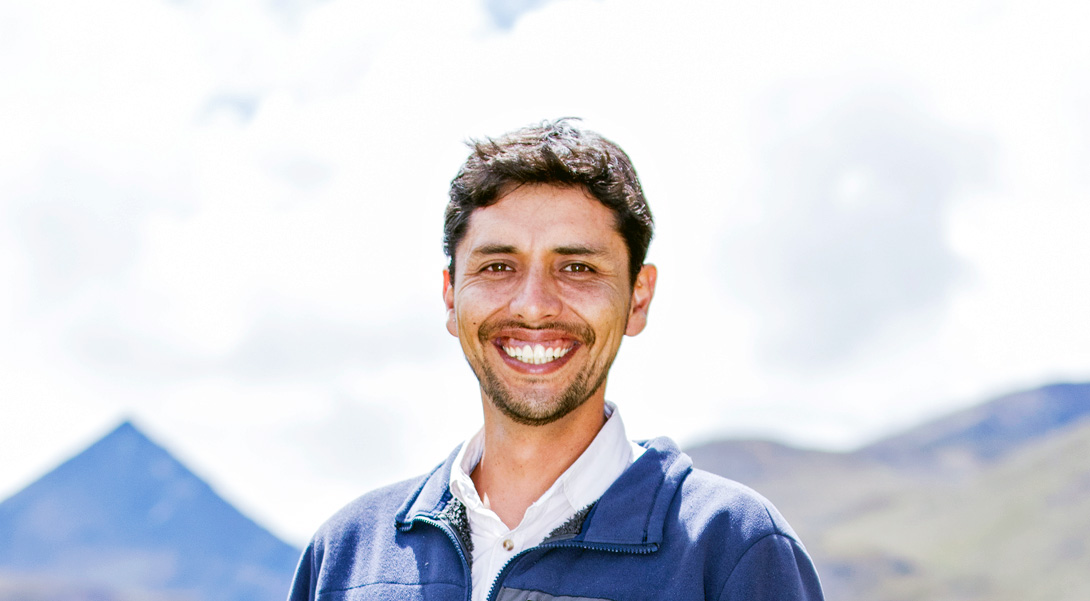 Juan Carlos Flores is the General Manager of Andean Lodges in Peru. Since 2006 the company is working with trekking and lodging in the South-American Andes. The vision of the TourCert-certified Lodge is to create alternatives for sustainable development that are inclusive, and in balance with the cultural perspectives of the Andean original communities.
Juan Carlos Flores is the General Manager of Andean Lodges in Peru. Since 2006 the company is working with trekking and lodging in the South-American Andes. The vision of the TourCert-certified Lodge is to create alternatives for sustainable development that are inclusive, and in balance with the cultural perspectives of the Andean original communities.
Things we wanted to know from Juan Carlos:
• What gave Juan Carlos the idea to start a sustainable tourism business?
• What are the benefits of sustainable travel in general and for Juan Carlos especially?
• Does Juan Carlos involve the local community in the business?
• What are his experiences of starting the business?
• How does he help interested companies that want to join his service and act sustainable?
• What kind of tourists visit the lodges?
• What are Juan Carlos wishes and hopes for the future?
What gave you the idea to make your business sustainable?
We believe that tourism must always be sustainable, respectful of the environments in which it operates and focused on contributing to the development of local populations. In past years, the tourism industry in the Cusco region has essentially been urban-based and has created jobs and investment opportunities for many middle-class Cusqueños. To help transform the industry toward a more rural-based and socially sustainable activity, we feel that it needs to further incorporate the highland’s traditional communities into its economic structure. Based on this idea, Andean Lodges incorporates the ancestral knowledge of the local inhabitants in the operations of the company, preserving the tradition of grazing llamas for transporting our clients’ luggage, and opening a space in which local women can offer their textiles; in addition, Andean Lodges works on the continuous training of community members to offer high – quality tourism services, working as cooks, housekeepers, etc.
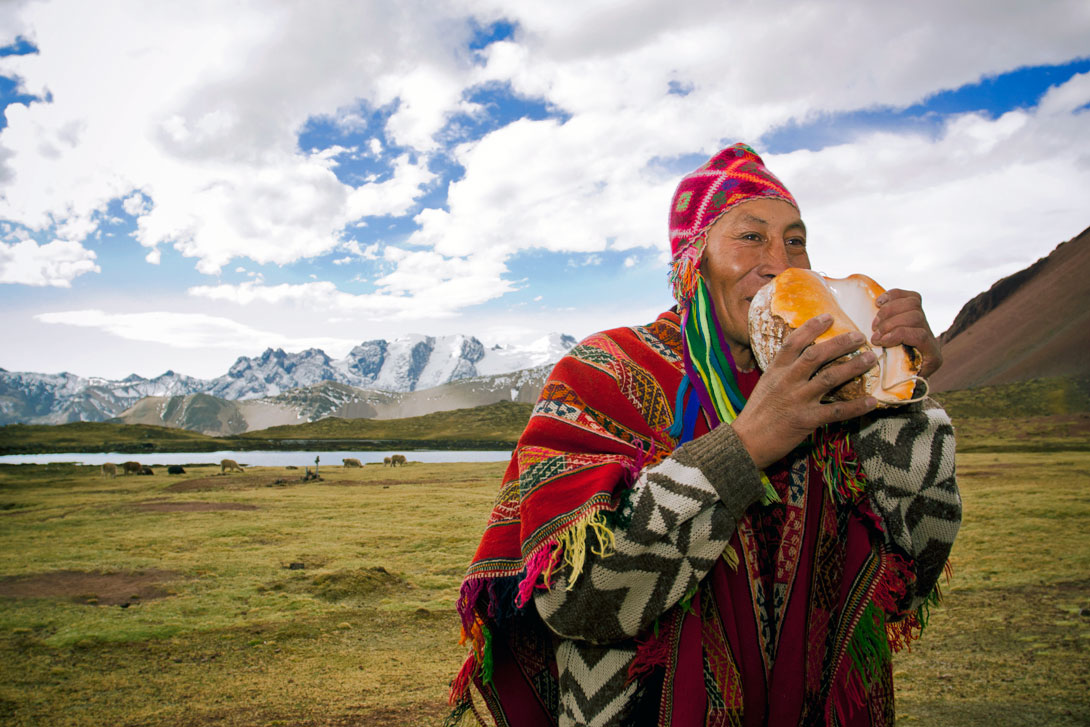
What are the benefits of sustainable travel in general and for you especially?
Working in tourism in a sustainable way is very important since it allows the conservation of natural and cultural spaces and generates benefits in local populations. The work at Andean Lodges has been based on these values and principles since its inception. Our mission as a company is to promote sustainable tourism and preserve the culture of the populations we work with, our specific benefit is achieving this goal.
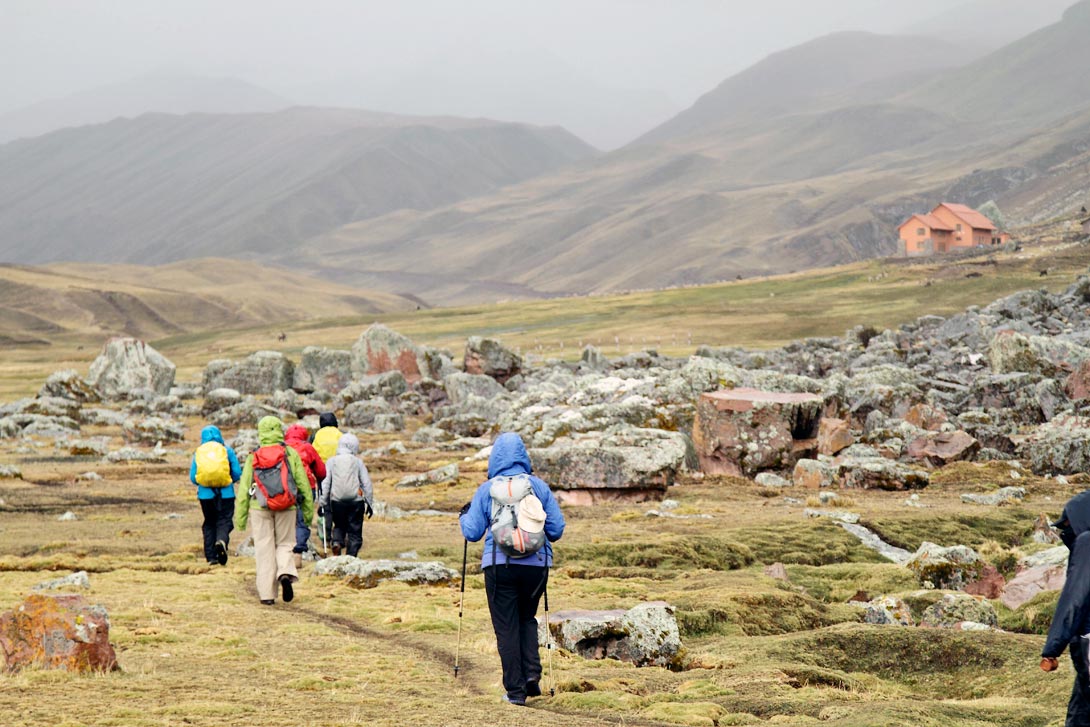
Do you involve the local community in your business?
Absolutely, the local communities of Ausangate, are co-owners of the company and active members of the board of partners, responsible for making decisions in the company. On the other hand, all the operative personnel, in charge of the services and the management of the lodges, come from the communities. The work we do is aimed at the preservation of the Andean culture, such as the breeding of llamas, traditional weavings, music and Andean myths, which are incorporated into our daily operation.
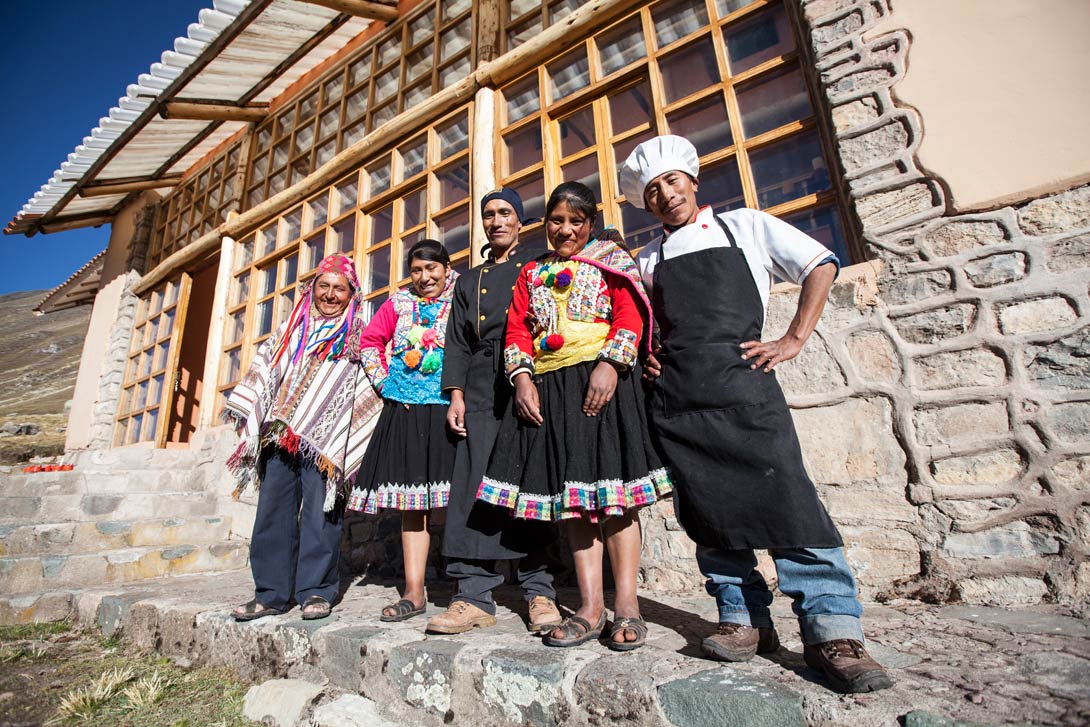
What are your experiences of starting your business?
We have four mountain lodges built thanks to the collaboration of the local communities. The location of our lodges and the construction took long time, during which we focussed on the training of the local inhabitants. This has been an arduous job, now the communities are ready to serve tourists with the highest level of quality. Training must be continuous, so it remains a very important aspect of our organization until today.
How do you help interested companies that want to join your service and act sustainable?
We offer hiking service and we work with many companies that want to offer sustainable tours to their clients.
What kind of tourists visit your lodges?
Mainly tourists from North America, and Western Europe. Our clients tend to be people who look for open spaces far from the modern world and where they can be in contact with nature and local populations.
What are your wishes or hopes for the future?
Sustainable tourism must become a common and inherent aspect of all tourism activities.
